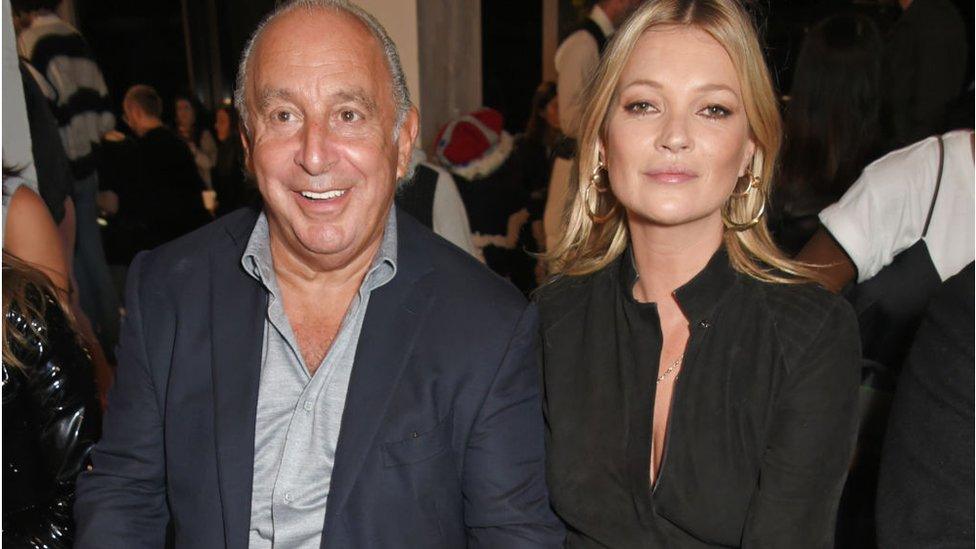Philip Green's Topshop empire plunges to huge loss
- Published
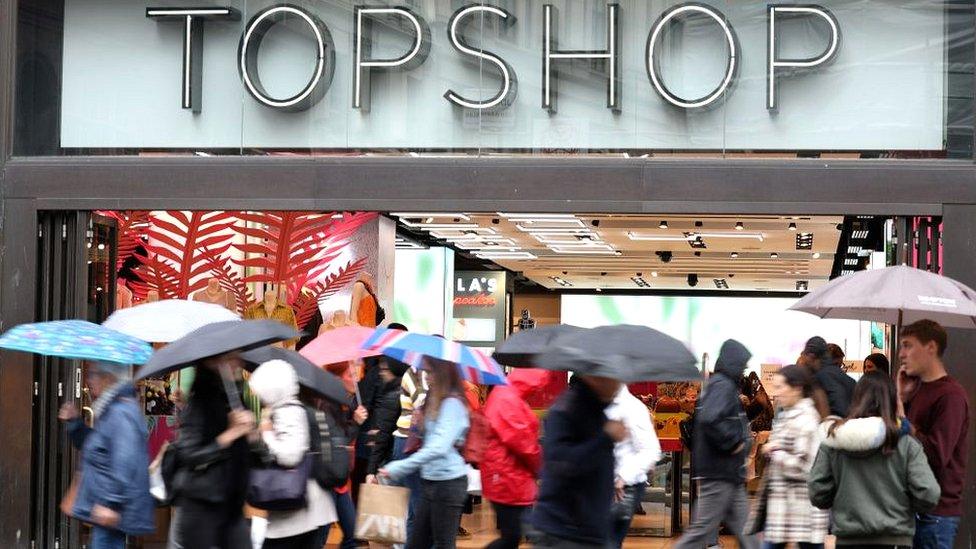
Sir Philip Green's Topshop retailing empire plunged to a loss last year, blaming a "dramatically" changed retail landscape and increased competition.
The business, which also includes Miss Selfridge and Dorothy Perkins, has since agreed a rescue deal with its creditors that triggered 48 store closures.
The results for the year to 1 September 2018 show a loss of £169.2m compared with a £49.4m profit a year earlier.
It also warned it may need fresh funds.
The rescue deal, agreed in June, involved the landlords to the chains of stores backing a number of company voluntary arrangements (CVA), allowing the business to reach an agreement with its creditors to pay off all or part of its debts.
In an update provided in the latest results, the directors say are they "confident that we will deliver on our plan, improve the way we work and win the hearts and minds of more and more of our customers".
'Challenging year'
The results are for Taveta Investments, the holding company of the Arcadia group of businesses owned by Sir Philip's wife Tina.
The company said a 4.5% fall in its turnover was caused by "the ongoing challenging global market conditions for retailers".
If exceptional items and other one-off costs are stripped out the company made an operating profit of £78.1m, down from £124.1m a year earlier.
Taveta said profits were knocked because it was not able to close stores at the same pace that sales fell.
"After coming through a challenging year, we are now very clear on our strategic direction," it added.
In a trading update in the latest results, the directors say that after closing its US stores and the Outfit Kids business, the group is expected to remain in its current form with a "portfolio of diverse, market-leading brands".
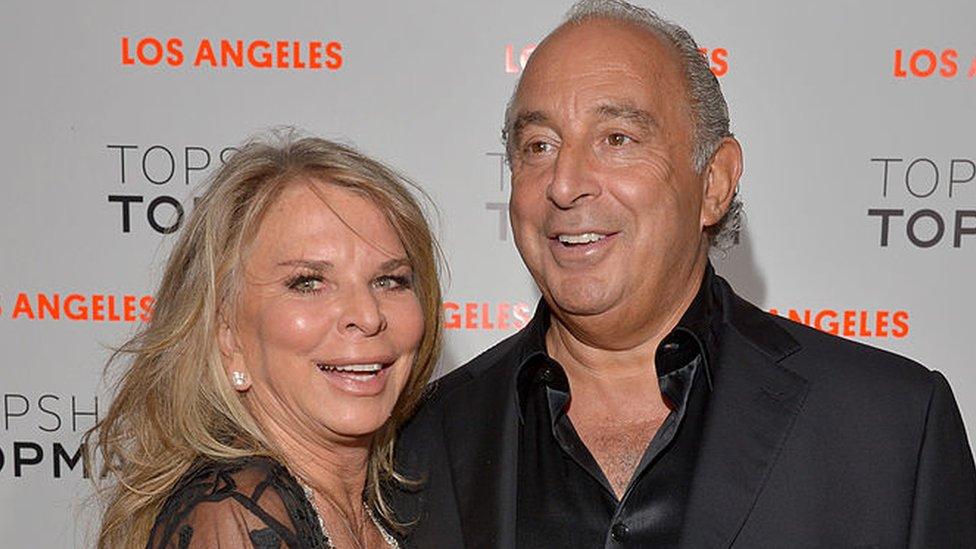
Tina Green, owner of Arcadia with her husband, Arcadia chairman Sir Philip Green
The results highlight the importance of refinancing a £310m loan on the flagship Topshop store on London's Oxford Street, which is currently due to be repaid in December.
If that does not happen, the company said "the lenders would be able to enforce their security on its property in order to recover their debt".
The directors express confidence that the loan can be refinanced. They say the store remains an attractive site, with Nike taking an additional floor in the building, while space previously used by Miss Selfridge has been leased to retailer Vans.
However, they also say that the risk around the refinancing of the Oxford Street store and the "on-going difficult financial conditions in a volatile retail sector" could force the business to seek fresh financing.
On a pre-tax basis, Taveta's loss is £177m compared with profits of £53.5m a year earlier.
Results for Arcadia, filed separately, show a pre-tax loss of £93m compared with £164m in the previous year.
'Changed forever'
In June, Sir Philip acknowledged to the BBC that the retail landscape had changed and that he had been slow to react.
"The market place has changed forever - people want a different kind of service. Should we have seen that three or four years ago - maybe. But now we need to get on with the job," he told the BBC in June.
The business has not been alone in finding the going tough on the High Street.
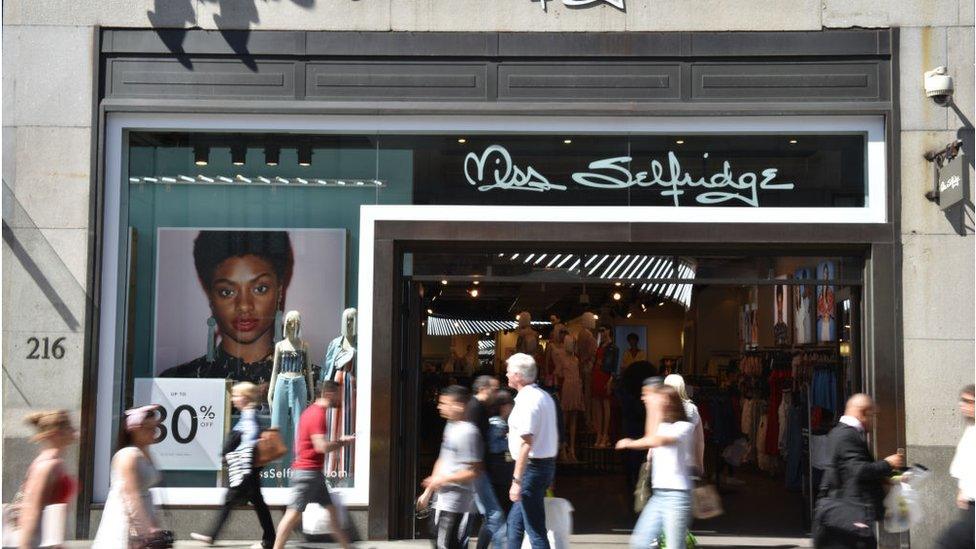
Earlier this year, Britain's biggest department store chain Debenhams fell into the hands of its lenders as part of an administration process, while House of Fraser was sold to Mike Ashley's Sports Direct last year.
Marks and Spencer has also illustrated the woes facing traditional retailers, falling out of the FTSE 100 index this week amid competition from firms such as Primark on the High Street and Boohoo online.
- Published13 June 2019
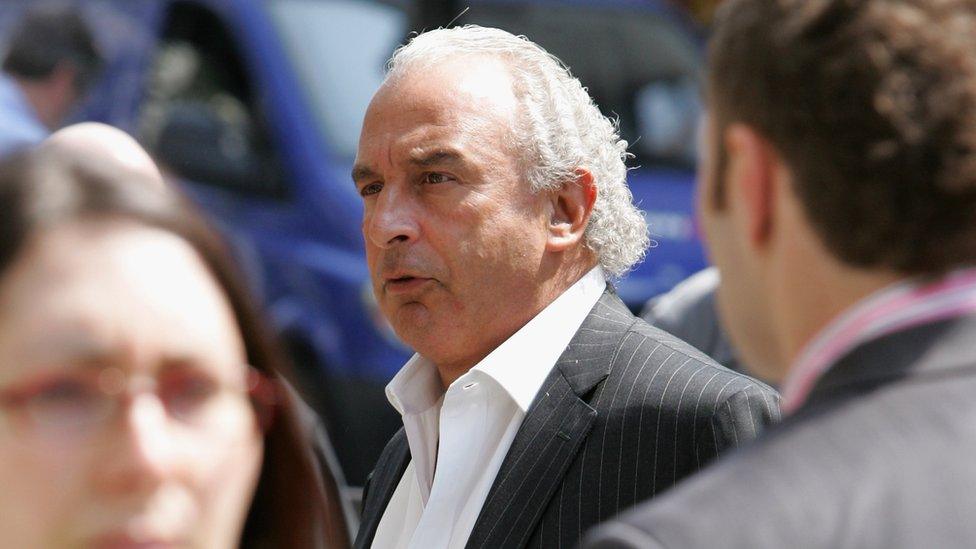
- Published12 June 2019
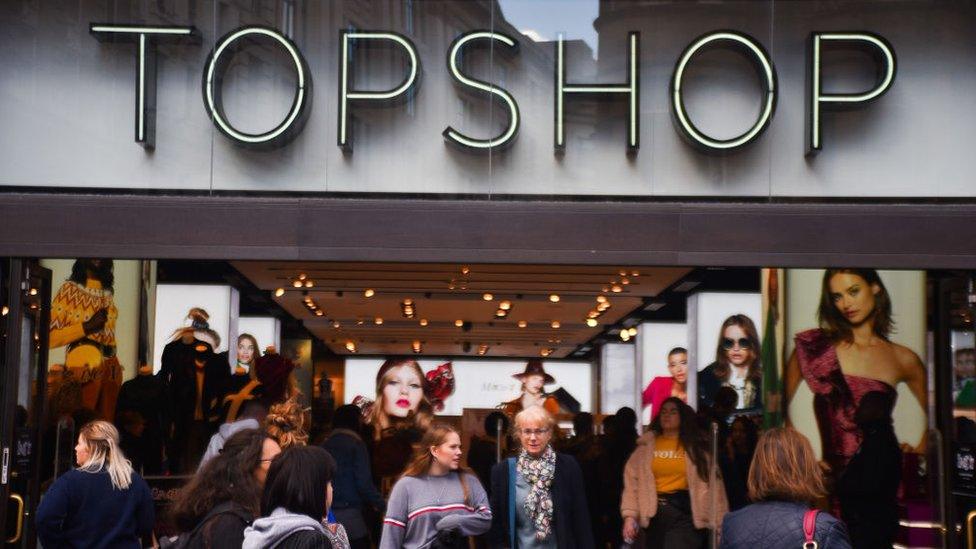
- Published1 May 2019
